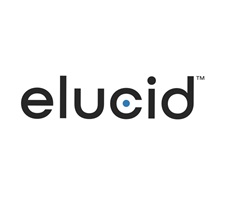 Elucid has announced the launch of its PlaqueIQ image analysis software for the quantification and classification of plaque morphology in the carotid arteries. According to the company, as the “first and only” computed tomography (CT)-based plaque analysis software indicated for the carotid vasculature, PlaqueIQ may help physicians diagnose carotid plaques at risk for rupture, and develop patient-specific treatment pathways to monitor and prevent ischaemic stroke.
Elucid has announced the launch of its PlaqueIQ image analysis software for the quantification and classification of plaque morphology in the carotid arteries. According to the company, as the “first and only” computed tomography (CT)-based plaque analysis software indicated for the carotid vasculature, PlaqueIQ may help physicians diagnose carotid plaques at risk for rupture, and develop patient-specific treatment pathways to monitor and prevent ischaemic stroke.
“The ability to characterise plaque composition precisely revolutionises carotid stroke risk assessment,” said David Deaton (University of Pennsylvania, Philadelphia, USA). “Plaque composition has long been recognised as a critical risk element for stroke but was not available with conventional imaging techniques. Precise determination of plaque composition supersedes the traditional stenosis assessment and allows a more accurate identification of patients at highest risk for carotid stroke, and facilitates procedural choice and planning.”
“For years, we’ve used CT to quantify coronary plaque and personalise prevention—and, now, being able to do the same with the carotid arteries is a gamechanger,” added Alberto Morales (South Tampa Cardiology, Tampa, USA). “This technology finally lets us measure and monitor carotid plaque biology, not just anatomy, giving us a much more complete picture of stroke risk and overall vascular health. This is truly the future of vascular medicine.”
PlaqueIQ is a US Food and Drug Administration (FDA)-cleared tool that provides non-invasive plaque analysis based on objective histology, offering physicians ‘CT Virtual Histology’, Elucid claims. The software delivers quantification and classification of plaque morphology, and is described in a press release as being “uniquely capable” of identifying and quantifying lipid-rich necrotic core—a plaque type strongly linked with both cardiovascular and cerebrovascular risk.
Elucid notes that PlaqueIQ is designed to help physicians prioritise and personalise treatment based on actual coronary and carotid artery disease as opposed to population-based risk. The technology is intended to support physicians in evaluating the treatment of patients’ symptoms and their risk of future events like heart attack or stroke by enabling the development of personalised care pathways informed by each patient’s individual plaque characteristics.
When used for both the coronary and carotid arteries, PlaqueIQ non-invasively delivers a quantitative and qualitative assessment of systemic atherosclerotic risk, and creates the potential to perform both coronary and carotid plaque analysis in a single scan.
“At Elucid, it’s our mission to go after the number-one source of heart attack and stroke, and that is plaque wherever it occurs in the coronary or carotid vasculature,” said Kelly Huang, the company’s chief executive officer (CEO). “We envision a day that, with just one scan, physicians can gain a powerful understanding of systemic atherosclerotic risk in order to personalise treatment for and monitor the whole patient.”









